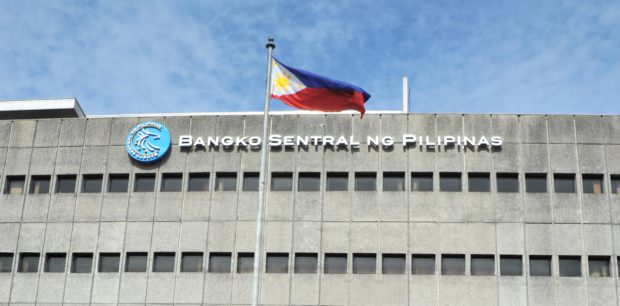MANILA – The Bangko Sentral ng Pilipinas (BSP) is expected to raise its policy rate by 25 basis points or 0.25 percentage point to 6.25 percent on March 23 amid lingering concerns about the health of the global financial system.
This will represent a slower tightening that, according to ING Bank, might pave the way for a likely pause of hikes in May.
Before the latest policy meeting scheduled on Thursday, the Monetary Board (MB) went for hikes of 0.5 ppt on two previous occasions—February and December 2022.
This, in turn, followed a 0.75-ppt hike in November last year. Since starting the tightening cycle last May, the BSP’s key rate has risen by 4 ppt from a pandemic-prompted historic low of 2 percent.
Commitment
Nicholas Mapa, senior economist at ING Bank, said a smaller rate hike this week will serve as an “insurance” considering that inflation remained well-above the government’s target range at 8.6 percent in February.
“The BSP needs to display commitment to price stability, even for a little longer,” Mapa said. “The BSP is likely doing a one-and-done with a pause likely at the May 18 meeting.”
He added that if inflation slowed further and the BSP did pause in May, the BSP may even reduce banks’ minimum reserve requirements.
The economic research team at Goldman Sachs said the slower inflation in February—coming from 8.7 percent in January—“should open the door for this pivot,” referring to a slower hike of 0.25 ppt.
Robert Dan Roces, chief economist at Security Bank Corp., agrees because he believes that the MB’s decision will still be driven by concerns over rising inflation, a desire to stabilize the Philippine peso, and an effort to attract foreign investments.
Inflation movements to set policy rates, says BSP
“This smaller increase, however, suggests a more cautious approach to strike a balance between managing inflation that is estimated to begin tempering this month and supporting economic growth,” Roces said.
He added that a smaller increase would also mean an attempt to maintain macroeconomic stability while addressing potential risks to the economy given what happened to several small banks in the US and to Credit Suisse.
Taimur Baig, global chief economist at Singapore-based DBS, said the task of central banks has become acutely difficult after the failure of Silicon Valley Bank and Signature Bank.
Baig said that central banks that are already challenged by sticky inflation, have made restoring banking sector confidence a priority.
He said the need to keep policy rates high is clear considering that inflation is likely to remain well above central banks’ target this year.
“But to support market confidence, generous liquidity provision for the banking system is warranted,” he added. “Only a very clear and credible central bank may be able to pull off this balancing act.”
RELATED STORY:
BSP may opt to hike rates by 25 bps or keep unchanged, says Philippines’ finance chief


